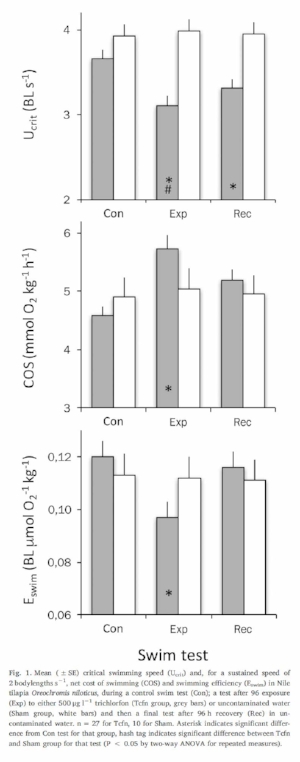Organophosphate pesticides are used worldwide and often end up polluting waterways. These substances are known to have sub-lethal effects on fish, generally impairing swimming ability via a range of physiological mechanisms. Most studies in this area, however, focus on mean-level responses to pesticide exposure. In this study, we aimed to determine whether individual fish within a species were more or less sensitive to exposure to organophosphate pesticides. In summary, pesticide impaired swimming performance in all fish performance by reducing swimming efficiency, but individual tilapia varied widely in their relative sensitivity. Intrinsic individual metabolic physiology determined effects of the pesticide on performance and, in particular, good swimmers remained better swimmers after exposure. This individual variation in sensitivity could play a role in selective processes and evolutionary responses in polluted habitats. Read more in the OPEN access article, here:
http://www.sciencedirect.com/science/article/pii/S0166445X17301558
McKenzie, D. J., Blasco, F. R., Belão, T. C., Killen, S. S., Martins, N. D., Taylor, E. W., & Rantin, F. T. (2017). Physiological determinants of individual variation in sensitivity to an organophosphate pesticide in Nile tilapia Oreochromis niloticus. Aquatic Toxicology, 189, 108-114.

